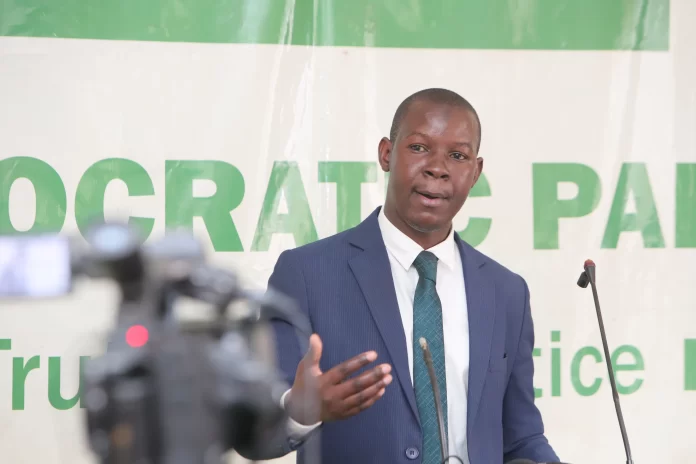
The Democratic Party (DP) Deputy Spokesperson, also doubling as the President of the Uganda Young Democrats (UYD), Ismail Kirya, has called upon the Ugandan government to also celebrate other heroes, citing those not part of the NRM and those that were in the struggle and contributed to Uganda’s development before the NRA came to power.
While addressing members of the press at City House in Kampala on June 11, 2024, Kirya asked the NRM government to also consider other Ugandans who have contributed positively to the development of Uganda even when they were not part of the NRA or part of the current NRM regime.
“As DP, it looks like Heroes’ Day in Uganda began in 1986, which is wrong. We need to recognize the past regimes and stop politicizing Heroes Day. Now that it has become a day for NRM cadres, we request that the government remove politics from the Heroes’ Day celebrations, and that way we shall be able to recognize the real heroes of Uganda,” Kirya said.
Kirya further noted that heroes did not start with the NRA regime, and there were many Ugandans in the past who deserved to be considered heroes, but because they were in the DP or opposition, they were ignored.
“We had the likes of Benedicto Kiwanuka of DP and Dr. Apollo Milton Obote of UPC, who played an important role in helping Uganda get independence. It is a very wrong narrative considering heroes are only those who fought to bring the current government into power because being a hero doesn’t mean you had to be a fighter between 1986 and beyond,” Kirya added.
Kiira’s remarks come after Uganda celebrated its 35th Heroes Day in Gomba district on June 9, 2024, where President Museveni awarded 53 medals to selected Ugandan heroes. The theme of the event was “Hail Our Heroes: A Secure Uganda Is Now Reality.”
At the Heroes’ Day celebration, President Museveni, also the Commander-in-Chief of all Armed Forces, attributed their success during the protracted liberation war (1981–1986) to the correct principles of the National Resistance Army/Movement (NRA/M).
Museveni acknowledged Gomba’s role in the protracted struggle and said that Gomba was an operational area for UFM and FEDEMO and a corridor for NRA recruits from the Southwest to Luweero, adding that the NRA fighters had passed through Gomba during the attack on Kabamba Military Barracks.














